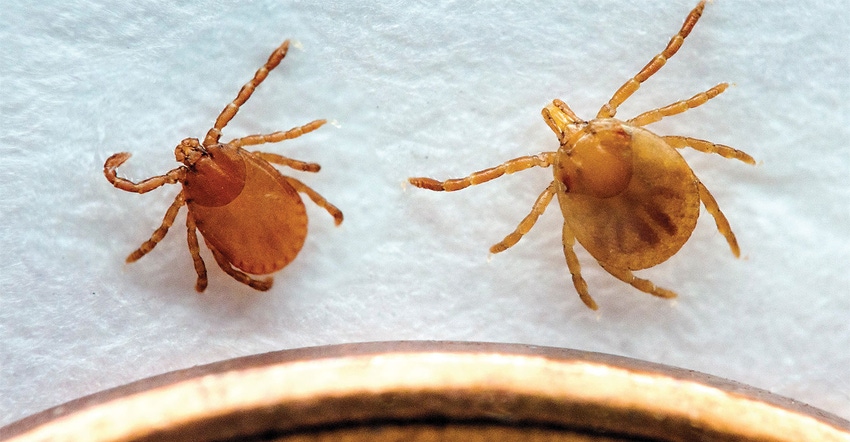June 18, 2019

The invasive Asian longhorned tick has been detected in Tennessee, according to an announce,ment by the Tennessee Department of Agriculture, USDA-APHIS, Tennessee Department of Health, and University of Tennessee Institute of Agriculture.
The Asian longhorned tick has now spread to 11 states. The Centers for Disease Control and Prevention reports that there is no evidence that the tick has transmitted pathogens to humans or animals in the United States.
Two Asian longhorned ticks were recently found on a dog in Union County, Tenn., and five were found on a cow in Roane County, Tenn. In the United States, the tick has been reported on 17 different mammal species.
“Tennessee has a relatively large amount and variety of ticks,” said Dr. R.T. Trout Fryxell, Associate Professor of Medical and Veterinary Entomology for UTIA. “It is important to be diligent and keep an eye out for all ticks because many varieties can transmit pathogens or cause painful bites.”
Tips to prevent tick bites in animals and livestock include:
• Coordinate with your veterinarian to determine appropriate pest prevention for pets and livestock.
• Check pets and livestock for ticks frequently.
• Remove any ticks by pulling from the attachment site of the tick bite with tweezers.
• Monitor your pets and livestock for any changes in health.
If your animals are bitten by a tick, Trout Fryxell suggests putting the tick in a ziplock bag, writing down the date and where the tick was most likely encountered, and storing it in a freezer. If any symptoms of a tick-borne disease begin to develop, you should bring the tick to your veterinarian.
For additional information about the longhorned tick in the United States, visit www.aphis.usda.gov/publications/animal_health/fs-longhorned-tick.pdf. To find more information on tick-borne diseases, visit www.cdc.gov/ticks/tickbornediseases/index.html.
Source: Tennessee Department of Agriculture, which is solely responsible for the information provided and is wholly owned by the source. Informa Business Media and all its subsidiaries are not responsible for any of the content contained in this information asset.
You May Also Like




